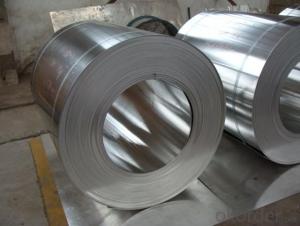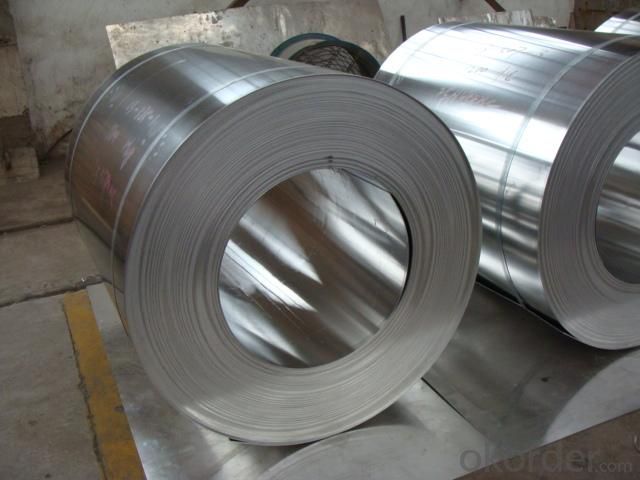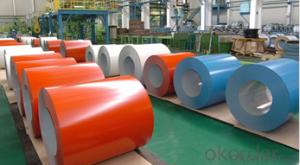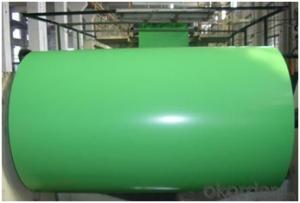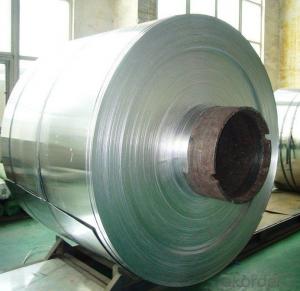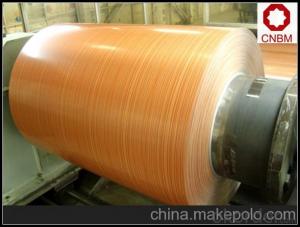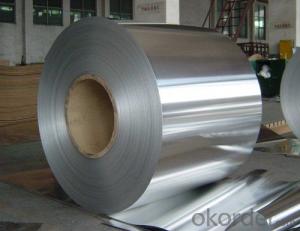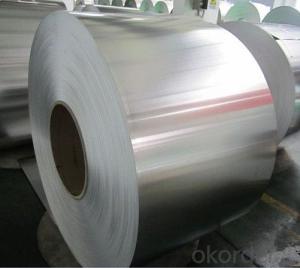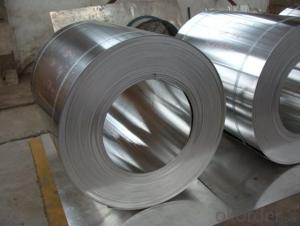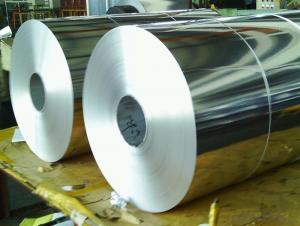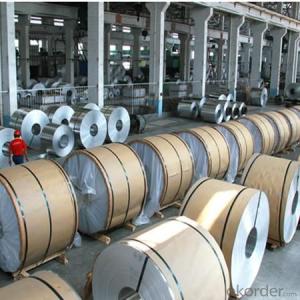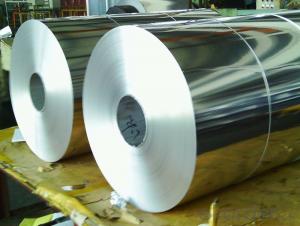Gentek Aluminum Coil 5052 Temper HO 0.4mm 0.5mm 0.6mm Thick Aluminum Roll
- Loading Port:
- Shanghai
- Payment Terms:
- TT OR LC
- Min Order Qty:
- 5 m.t.
- Supply Capability:
- 6000 m.t./month
OKorder Service Pledge
OKorder Financial Service
You Might Also Like
Specification
5052 Temper Ho 0.4mm 0.5mm 0.6mm Thick Aluminum Roll
Applications:
Aluminum foil roll is widely used in construction,decoration,hardware,
electric appliances,machinery and other industrial and civil purposes,
such as electronic capacitor,composite cooker,rice cooker,refrigerator,
computer casting,telecommunication,equipment,lamp shade,air conditioner,
cosmetics cover and so on.
Or it can be made as customers’ requirement.
Specifications
color aluminum coil
1000 series 1100 10160 1200
surface could be: Brushed, drawing, embossed, printing
color: red,
color aluminum coil
.Alloy type: 1050/1060/1100/1350
2.Temper: H16, H18, H22, H24
3.Thickness range: 0.1mm-4mm
4.Width range: 25mm-1600mm
5.Surface:finish: bright & smooth surface, without flow lines, slight oiled to avoid white rusting.
6.Quality material:totally free from such defefects as roll marks, edge damager, camber, white rust, oil patches, holes, break lines,
color aluminum coil
Name |
color aluminum coil |
Alloy or not | yes |
Alloy | 1100H16/18, 3003H24,3003H26,3005H26,8011,3004,3105,5005,etc. |
Thickness | 0.1-4mm |
Width | ≤1600mm |
MOQ | 5T |
Coating finish | Brushed, drawing, embossed, printing |
Color | As to code RAL |
Surface | Embossed,Mill Finish,Coated,Brushed |
Gloss | 10-90%(EN ISO-2813:1994) |
Total coating thick | PVDF27 ~35micron |
Polyester18~27micron(EN ISO-2360:1995) | |
Coating hardness | 2H |
Adhesion | 5B (EN ISO-2409:1994) |
Impact resistance | No cracking and peeling (A.S.T.M D2794-1993) |
Flexibility (T-bend) | 0T- 2T |
MEK resistance | 100 |
Certification | ISO9001:2000, CE, SGS |
Coil's standard diameter | 1100mm |
Inner Diameter | 405mm/505mm |
Coil's standard weight | 2000kgs |
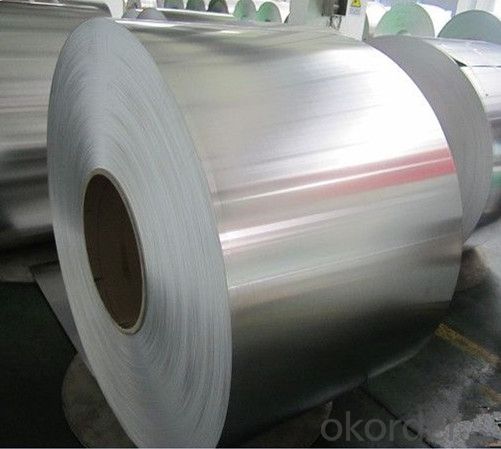
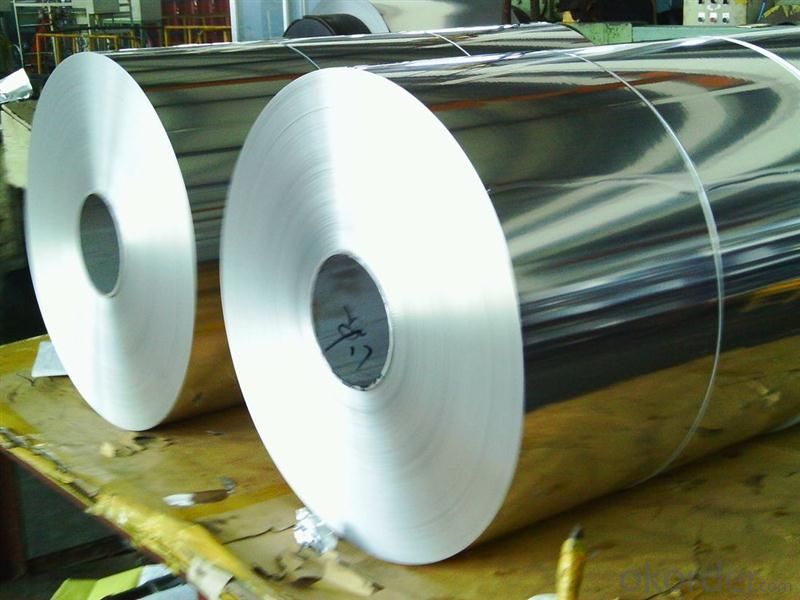
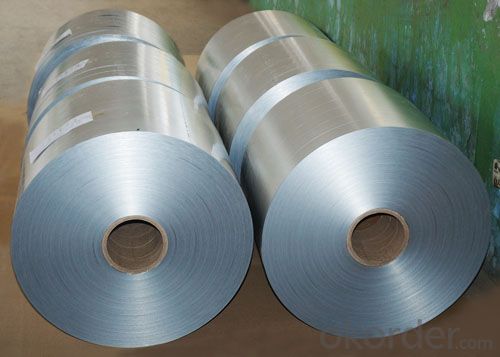
- Q: What are the potential applications of painted aluminum coils?
- Painted aluminum coils have a wide range of potential applications due to their durability, versatility, and aesthetic appeal. One of the most common applications is in the construction industry, where painted aluminum coils are used for roofing and siding materials. The painted coating enhances the longevity of the aluminum by providing protection against corrosion, UV rays, and harsh weather conditions. Additionally, painted aluminum coils find applications in the manufacturing of transportation vehicles. The lightweight nature of aluminum makes it an ideal material for automotive parts, such as body panels and trim. The painted coating not only enhances the appearance of the vehicle but also provides a protective layer against scratches and dents. Another potential application of painted aluminum coils is in the production of household appliances. The painted coating adds a distinct finish to appliances like refrigerators, ovens, and washing machines, making them more visually appealing. Moreover, the protective layer helps to prevent damage from everyday use, increasing the lifespan of the appliances. Furthermore, painted aluminum coils find use in the signage industry. The ability to apply vibrant colors and designs on the coils makes them suitable for creating eye-catching signs and billboards. The durability of the painted coating ensures that the signage remains vibrant and intact even in outdoor environments. In the furniture industry, painted aluminum coils can be used for manufacturing various pieces such as chairs, tables, and cabinets. The lightweight nature of aluminum makes the furniture easy to move and transport, while the painted coating adds a stylish and modern touch to the designs. Overall, the potential applications of painted aluminum coils are vast and diverse, ranging from construction and automotive to appliances, signage, and furniture. The combination of durability, versatility, and aesthetic appeal makes painted aluminum coils a popular choice in various industries.
- Q: What are the energy efficiency benefits of aluminum coils?
- Aluminum coils provide numerous energy efficiency benefits that make them a preferred choice in various industries. Firstly, aluminum is an excellent conductor of heat, allowing for efficient transfer of thermal energy. This property is especially advantageous in the HVAC industry, where aluminum coils are commonly used in air conditioning and refrigeration systems. The high thermal conductivity of aluminum ensures that heat is effectively absorbed or released, resulting in faster cooling or heating processes and lower energy consumption. Additionally, aluminum coils possess exceptional corrosion resistance, which helps maintain their efficiency over time. Unlike other metals that may deteriorate due to exposure to moisture or chemicals, aluminum remains unaffected, ensuring optimal heat transfer efficiency throughout the lifespan of the coil. By preserving the coil's performance, energy losses due to reduced heat transfer are minimized, resulting in energy savings and increased system efficiency. Another significant advantage of aluminum coils is their lightweight nature. Compared to traditional copper coils, aluminum coils are significantly lighter, making them easier to handle during installation and maintenance. The reduced weight also translates into lower energy requirements for transportation, resulting in reduced carbon emissions associated with shipping. Furthermore, aluminum is a recyclable material, making it environmentally friendly and sustainable. The recycling process of aluminum requires significantly less energy compared to primary production, leading to reduced greenhouse gas emissions. By choosing aluminum coils, businesses can contribute to a more sustainable future by reducing their carbon footprint. Overall, the energy efficiency benefits of aluminum coils are vast. Their excellent thermal conductivity, corrosion resistance, lightweight nature, and recyclability make them an ideal choice for various applications, leading to reduced energy consumption, enhanced system performance, and a more sustainable environment.
- Q: Are aluminum coils suitable for reflective insulation?
- Yes, aluminum coils are suitable for reflective insulation. Aluminum is highly reflective and has low emissivity, which means it can effectively reflect radiant heat. This makes it an ideal material for reflective insulation, as it helps to reduce heat transfer by reflecting radiant energy away from the insulated space. Aluminum coils are commonly used in reflective insulation products such as foil-faced insulation boards and radiant barriers.
- Q: What is the minimum width of aluminum coils?
- The minimum width of aluminum coils can vary depending on the specific requirements and manufacturing capabilities. However, in general, the minimum width of aluminum coils typically ranges from around 0.25 inches to 0.5 inches. It is important to note that specialized manufacturing processes may allow for even narrower widths, but these are less common and may come with additional costs or limitations. Additionally, the specific application and industry requirements will also play a role in determining the minimum width needed for aluminum coils.
- Q: Are aluminum coils resistant to corrosion?
- Yes, aluminum coils are highly resistant to corrosion due to the natural oxide layer that forms on their surface, protecting them from environmental factors.
- Q: How do aluminum coils contribute to the electrical conductivity of products?
- Due to its excellent conductivity properties, aluminum coils find widespread use in electrical applications. With its high electrical conductivity, aluminum serves as an ideal material for the transmission and distribution of electrical power. The utilization of aluminum coils in products promotes the smooth flow of electric current. Thanks to its low resistance to the flow of electricity, aluminum enables efficient transmission of electrical energy. This low resistance guarantees minimal power loss during transmission, an essential factor in maintaining the efficiency of electrical systems. Moreover, aluminum coils possess a high thermal conductivity, enabling them to rapidly disperse the heat generated during the transmission of electrical current. This ability is crucial in preventing overheating, ensuring the stability and longevity of electrical products. The lightweight nature of aluminum further enhances its suitability for electrical applications. Its low density makes it easier to handle and install, reducing the overall weight of products and enhancing their portability. In conclusion, aluminum coils play a significant role in improving the electrical conductivity of various products. Their high conductivity, low resistance, and exceptional thermal properties make them the preferred choice in a diverse range of electrical applications, including power transmission lines, electrical cables, motors, transformers, and other electrical devices.
- Q: Can aluminum coils be used in aerospace applications?
- Indeed, aerospace applications do make use of aluminum coils. The aerospace industry extensively utilizes aluminum due to its lightweight nature and impressive strength-to-weight ratio. Aircraft structures, including fuselages, wings, and landing gear, often incorporate aluminum coils. Moreover, heat transfer and cooling systems also benefit from their presence. The exceptional corrosion resistance and high thermal conductivity of aluminum coils render them fitting for diverse aerospace purposes. Furthermore, their malleability and ease of fabrication enable the creation of intricate shapes and designs necessary for aerospace components.
- Q: Can aluminum coils be used in food processing applications?
- Food processing applications can utilize aluminum coils, as they offer a range of advantages. Aluminum is a widely used and highly adaptable material in the food industry due to its various benefits. Aluminum coils are lightweight, durable, and possess excellent thermal conductivity, which makes them suitable for applications requiring efficient and uniform heat transfer. When it comes to food processing, aluminum coils are commonly employed in equipment such as heat exchangers, evaporators, and refrigeration units. These coils help to cool, heat, or maintain the temperature of different food products during their processing, storage, or transportation. The exceptional thermal conductivity of aluminum ensures that heat is evenly dispersed, thereby aiding in the preservation of food quality and flavor. Furthermore, aluminum is a non-toxic and non-reactive metal, meaning it has no adverse effects on the taste or composition of the processed food. It is also naturally resistant to corrosion, ensuring that the coils do not contaminate the food and can be easily cleaned and maintained. In addition, aluminum is an environmentally friendly and recyclable material, aligning with the increasing demand for sustainable practices in the food industry. Its lightweight nature also contributes to energy efficiency and reduced transportation expenses. In conclusion, aluminum coils are a reliable, efficient, and safe choice for food processing applications. They meet the strict requirements of the industry while ensuring the quality and safety of the processed food.
- Q: Are aluminum coils suitable for electrical transformers?
- Yes, aluminum coils are suitable for electrical transformers. They have several advantages, including lower cost, lighter weight, and better thermal conductivity compared to copper coils. Additionally, aluminum coils have been widely used in power transformers, demonstrating their suitability for this application.
- Q: What are the potential fire hazards associated with aluminum coils?
- There are several potential fire hazards associated with aluminum coils. First and foremost, aluminum is a highly flammable material, which means it can catch fire easily and burn quickly. This poses a significant risk if there is an ignition source nearby, such as an open flame, electrical spark, or hot surface. Another potential fire hazard is the accumulation of dust, dirt, or other combustible materials on the aluminum coils. These substances can act as fuel for a fire, increasing the likelihood and intensity of combustion. It is important to regularly clean and maintain the coils to prevent the buildup of such materials. Aluminum coils are often used in HVAC systems, and if these coils are not properly installed or maintained, they can become a fire hazard. For instance, if the coils are not securely fastened or if there are loose electrical connections, it can lead to overheating and potentially cause a fire. Additionally, aluminum coils can cause electrical fires if they come into contact with live electrical wires or if there is a short circuit. This can happen if the coils are installed too close to electrical components or if there is a failure in the insulation or grounding of the system. Lastly, the use of flammable refrigerants in HVAC systems can also increase the fire risk associated with aluminum coils. If there is a leak or malfunction in the refrigerant system, it can create a flammable atmosphere around the coils, leading to a potential fire or explosion. To mitigate these fire hazards, it is crucial to follow proper installation guidelines, regularly inspect and maintain the coils, keep the surrounding area clean and free from combustible materials, and ensure that there are no electrical or refrigerant leaks in the system. It is also recommended to have fire detection and suppression systems in place to quickly respond to any potential fire emergencies.
Send your message to us
Gentek Aluminum Coil 5052 Temper HO 0.4mm 0.5mm 0.6mm Thick Aluminum Roll
- Loading Port:
- Shanghai
- Payment Terms:
- TT OR LC
- Min Order Qty:
- 5 m.t.
- Supply Capability:
- 6000 m.t./month
OKorder Service Pledge
OKorder Financial Service
Similar products
Hot products
Hot Searches
Related keywords
